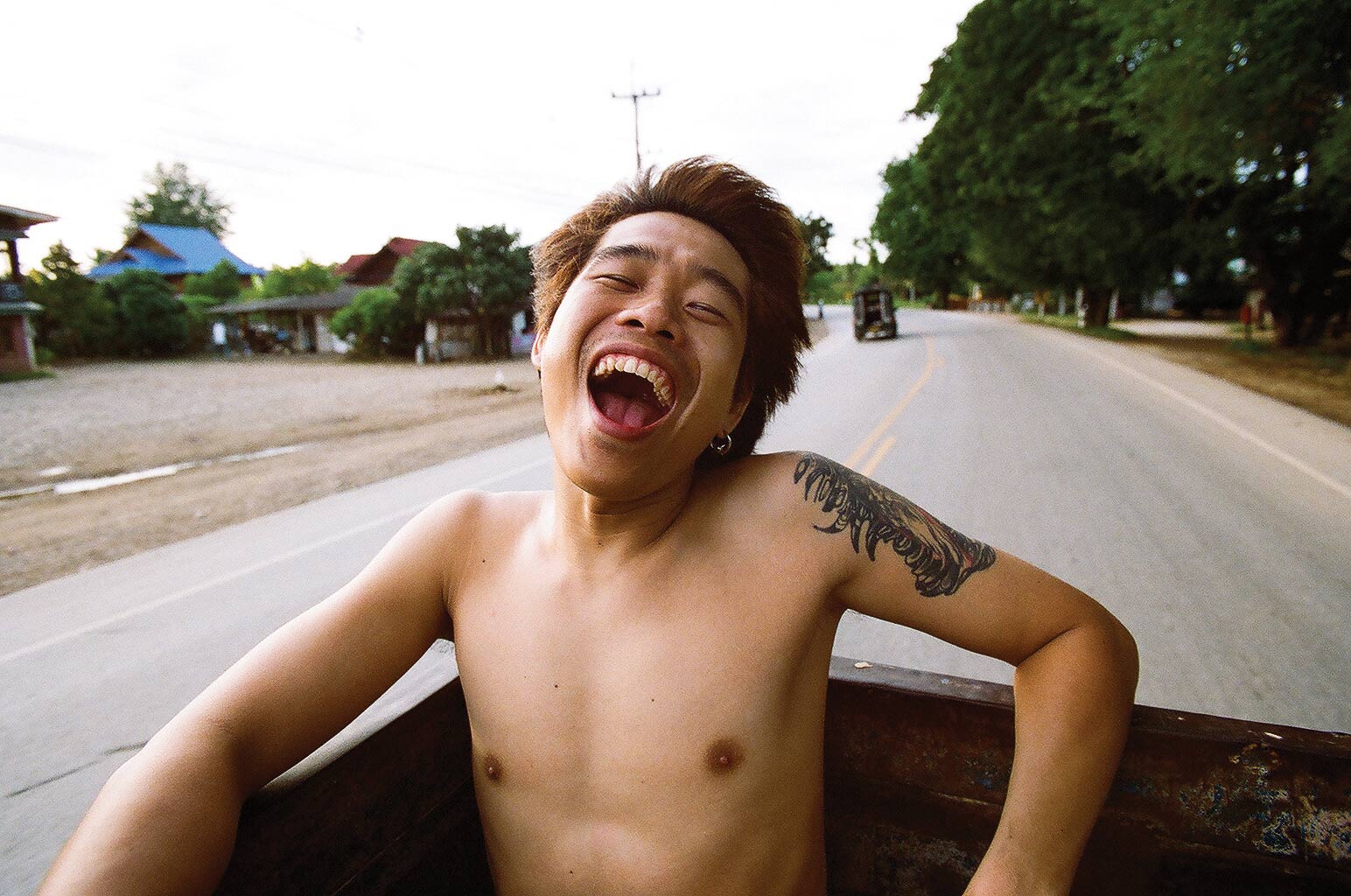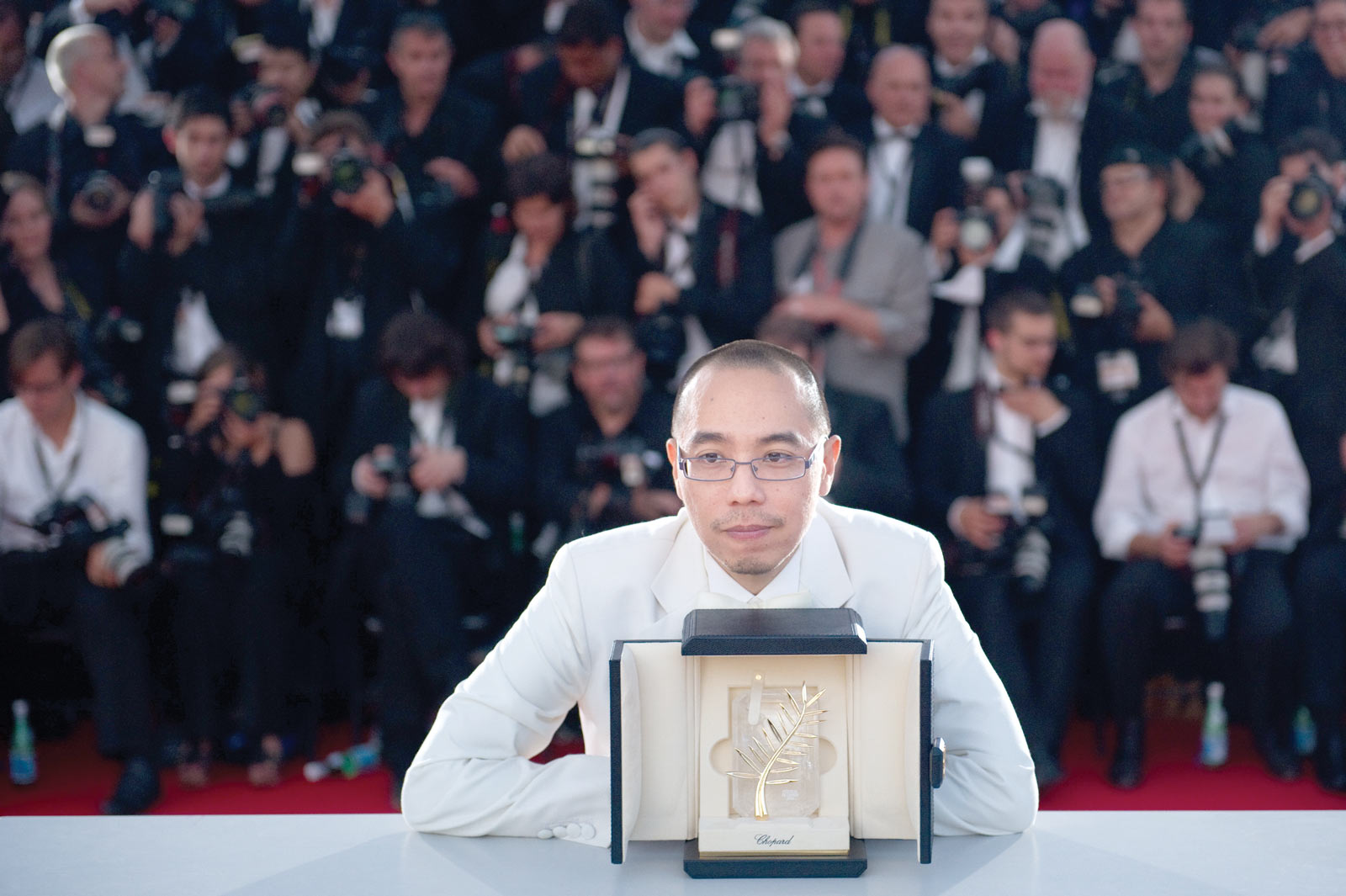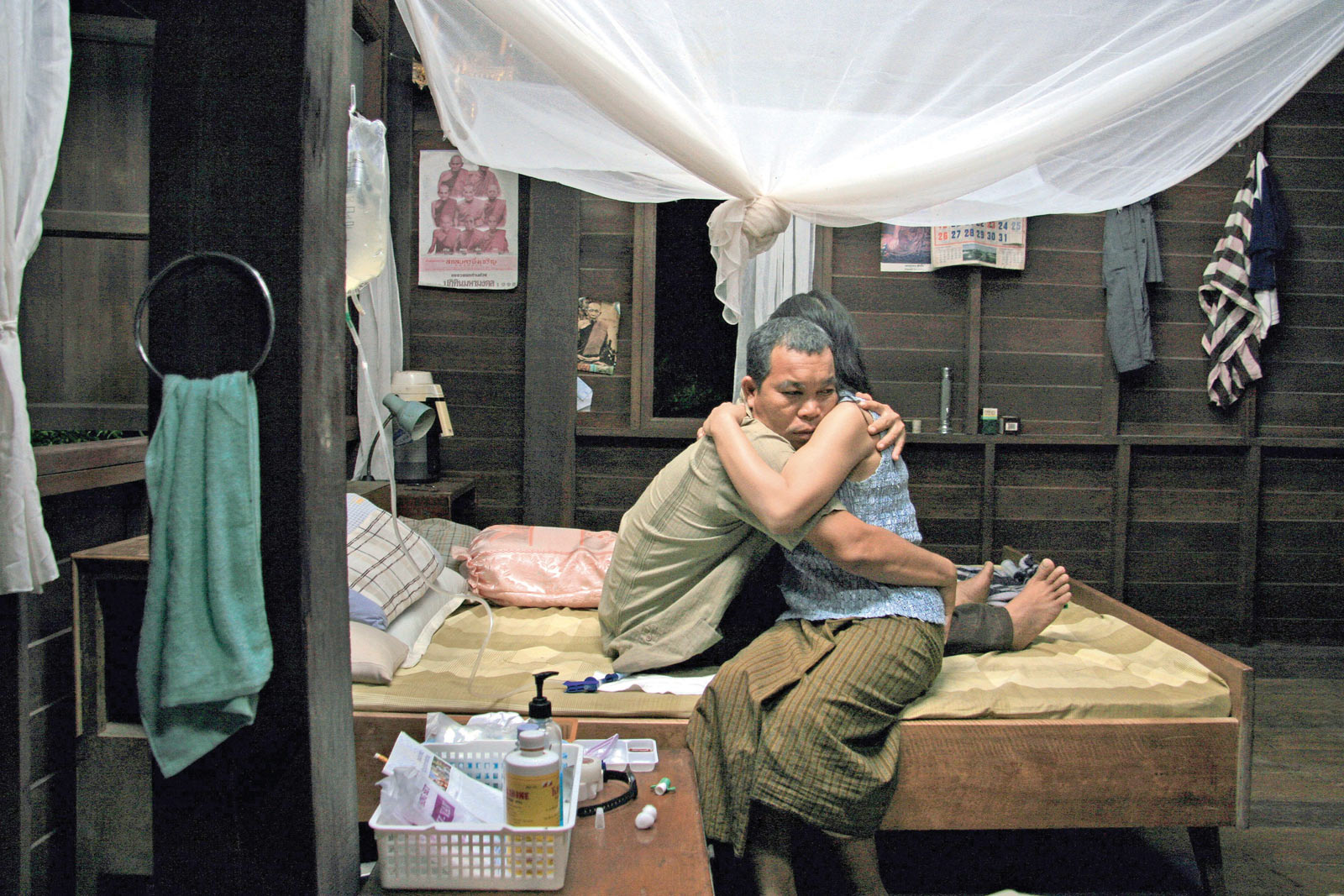In a moonlit rainforest, a blaring cacophony of cicadas is momentarily quietened by an ancient shaman tiger spirit who stares into the eyes of his petrified former human lover. “Your fear. Sadness. It was so real that they brought me to life,” he says. “Once I’ve devoured your soul we will be neither human nor animal. Stop breathing.”
This is the deeply spiritual world of Thai cinema’s most heralded independent filmmaker, Apichatpong Weerasethakul. “You can call me Joe,” he says casually as we chat on the phone.
The scene is from Joe’s film Tropical Malady which, in 2004, was the first Thai film to win the Jury Prize at the Cannes Film Festival. Since then his work has garnered huge critical acclaim and in 2010 won him the Palme d’Or, the highest accolade at Cannes, for his masterpiece Uncle Boonmee Who Can Recall His Past Lives.
Having just returned from Cannes once again after premiering his new film Cemetery of Splendour, Joe spoke exclusively with Southeast Asia Globe about believing in ghosts, the unfortunate otherness of LGBT in film and being exploited by the Thai government.
How does a boy from one of the most isolated regions of Thailand come to be a fixture at Cannes?
Well, I come from a remote town called Kong Kang in Isaan in the northeast of Thailand. When I was growing up, there wasn’t much there – a few dirt roads, shophouses, not much infrastructure. Both my parents were doctors from Bangkok at the only hospital in town. I didn’t pick up a video camera until I was 21 and at university in Bangkok. Growing up I wanted to be a comic book writer, but at the time in Kong Kang there were quite a few cinema theatres around. It was one of the few sources of entertainment we had. Back then it was always fantastic stories of ghosts, spirits and royal costume dramas. I think that had a big impact on me.
But stylistically your work today seems a far cry from those kinds of films, the ones you watched as a kid.
Yes and no. I think in terms of spirit I’m really influenced by these types of movies. I also really liked Italian neo-realism films. I used to watch them on VHS that I got from Bangkok. Also, when I was studying in Chicago in the mid-1990s I saw experimental film and video art for the first time – it had a huge impact too.

I guess I’ve taken my love and the spirit of old Thai television and cinema and merged it with the early neo-realist movement of the 1950s and experimental techniques of video art. When I started making movies in Thailand I tried to adapt all of this to the rhythm and temperature of the nation and, actually, I think I’m still trying to find a way [to do this].
In Uncle Boonmee, a monkey ghost spirit comes out of the forest and sits down at the dining table with his former human family and the characters hardly react. They accept the monkey ghost as completely real. Is this Thai neo-realism?
To be honest, in reality anyone would jump, no matter who you are, if this happened. Thai people really do believe in ghosts, they’re very scared of them. But in the film I wanted to show this relationship, that inside we as Thais are very accepting of another spiritual world. There’s almost a comical mood to the film.
Do you believe in ghosts?
Well I was raised Buddhist, but I think for the past few years I’ve not really believed in anything. Ghosts? No, not really. In past interviews I’ve said yes, that I’ve had experiences with ghosts, but now I don’t believe it. I think I just saw something I couldn’t explain, like a dream, and wanted to make sense of it. There’s no proof. I think religion is quite dangerous. For me, it doesn’t progress as fast as science and it’s a shame.
You often seem to incorporate dreams into your films.
Yeah, I think it comes from a personal reaction to living in Thailand and using filmmaking as a tool to understand the country. There was one project I did, a short ten-minute film in Isaan, where I worked with teenagers in a village that was brutalised by the Thai army during the communist revolts of the 1970s and 80s. I was developing this project there, and while I was trying to sleep it became my focus that dreams are a way to escape reality and find [an alternate] reality.
After this project I became more interested in dreams and sleep and began researching the science behind dreams. When we sleep we have this cycle, four stages, each of about 90 minutes. It’s human nature to have this cycle. I thought that 90 minutes was really striking because that’s the average length of a movie. I think the length of movies has evolved from this biological need to dream. So all movies are basically dreams; its what our bodies need. This [idea] really influenced my new film.
Tell us a bit about the new film.
It’s a simple synopsis about a group of Thai soldiers who fall asleep while sick. They sleep in the home of a volunteer housewife who had come to take care of the soldiers. It feels like she falls in love with one of them as both a lover and a son, as she’s much older. Together they share their dreams, there are layers and layers of dreams and reality that are threaded together, which sometimes leaves the audience and even the characters questioning whether or not they’re in a dream.

Do you have set ideas about how your work should be interpreted?
You know, a lot of the time I don’t even have my own opinion. I just [make films] really instinctively. You cannot understand everything in the world, sometimes it’s just beauty, instead of applying logic to every scenario. I think it’s liberating for both me as a director and for the audience. It’s more about developing an atmosphere for the audience, rather than a story, which I suppose is what dreams are.
Where did your urge to explore beauty and the unknown come from?
Well, I’m quite against the way I was educated. In Thailand it’s always really logical. In school we have to explain everything; when you make something you have to explain what the benefits of it are for society. Even going to Cannes on this trip I wanted some support from the Ministry of Culture and they give me this cheap economy ticket, no accommodation, nothing else. Then they demand reports afterwards, explaining how I’m benefiting the nation by taking this trip, like I’m still a school student.
Is this fairly indicative of your relationship with the government?
Well I try to stay away from the government, but sometimes I really need their support. I pay my taxes, so actually I’m a little upset. They sent a lot of people from the Ministry of Culture to Cannes and they did this special Thai night – I wasn’t there. I think they just used my poster and didn’t understand the importance of my film being in the official selection. I think it was mostly just to encourage more tourism.
Is the abstract nature of your films a rebellion against this way of thinking?
Maybe it was unconsciously at one point, but now I’m pretty conscious about all the taboos we have and the move towards conservatism in Thailand. There’s a lot going on in the media, a lot of restrictions at the moment. I no longer watch television, it’s pretty sad. But at the same time I feel that things are changing among the people. I think, I hope, that the current situation is going to create a new generation of filmmakers and artists. When you see a perfect society, often it doesn’t bring about interesting or innovative art and movies. So in a way I’m sad, but I’m also confident that this will bring about a really positive artistic movement.

As a gay man, do you find your sexuality influences your work?
It’s hard to say, I don’t actually know. I don’t try to draw attention to my sexuality. People bring it up and I don’t mind, but I like to portray my sexuality and the characters’ sexuality in films as something very natural, because I think we’re still not progressing fast enough in terms of LGBT representation in movies. We’re represented as victims or something special, something different, in both a negative and positive way, but I want it just to be irrelevant. We’re just human beings.
Do you want to be seen as a national filmmaker for Thailand?
Not really. They can exploit me if they want, I don’t mind, as long as I get a bit of support then it’s OK. Thailand is so diverse and I want to show this in my movies. Not everyone lives in the stereotypical beautiful areas that are portrayed in the media. I just want to show my own small world.
Indeed, almost all of your films have been set in remote regions such as Isaan.
I always tried to get out, but now I see my childhood and the region as an energy that I need to draw from and tap into for my work. I remember this line in the movie Cinema Paradiso: “Don’t live in the place you’re born, you’ll go nowhere.” The moment I heard that as a kid in Isaan, it had an immediate effect on me. I felt I needed to escape from Isaan, I needed to escape from Thailand. I needed to escape to another planet.
Keep reading:
“He’s a monster” – Actor Chris Pratt, known variously as Monkeyboy to his friends, Star Lord in Guardians of the Galaxyand now dino expert Owen Grady in Jurassic World, has come a long way in a short time. Here he talks about breaking the mould, sticking to the masterplan and his love of cockroaches


